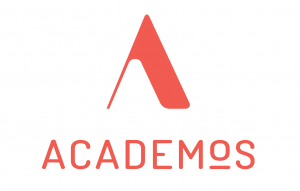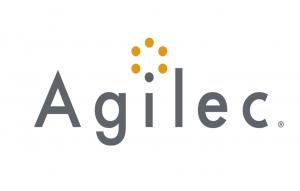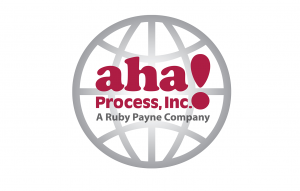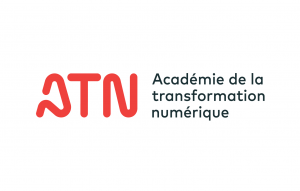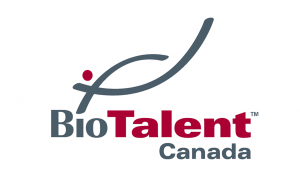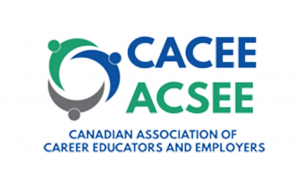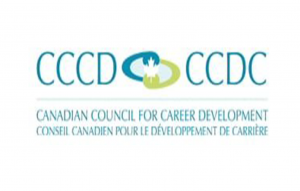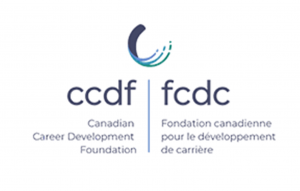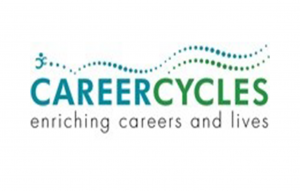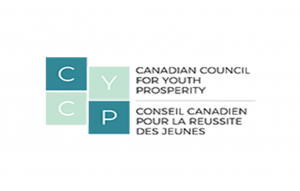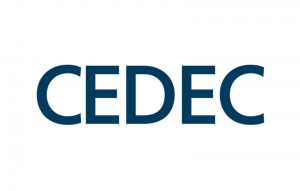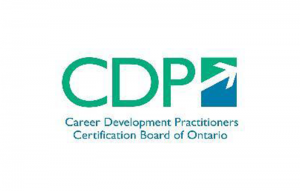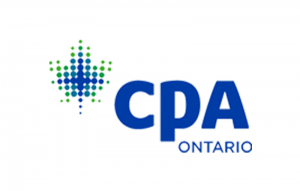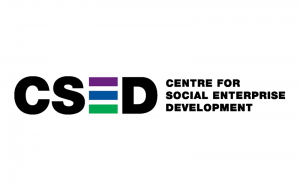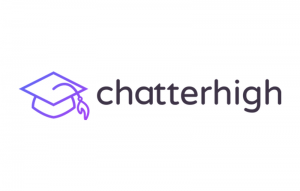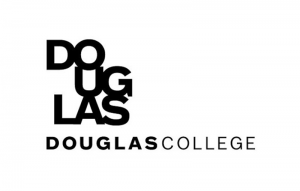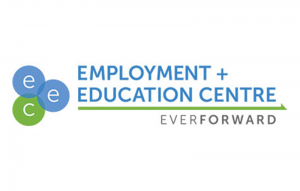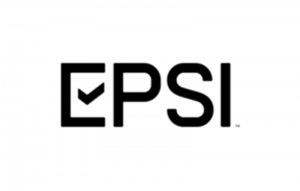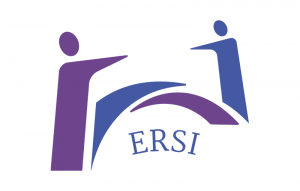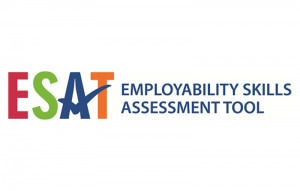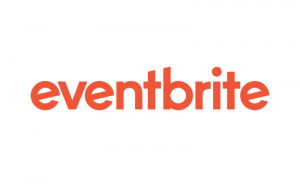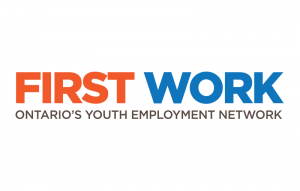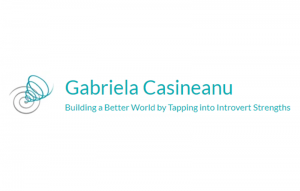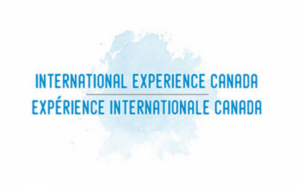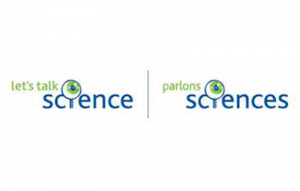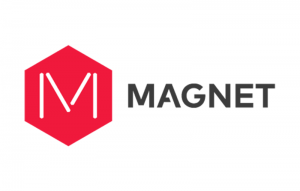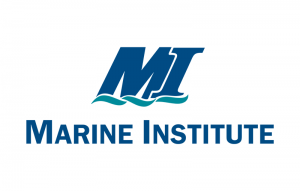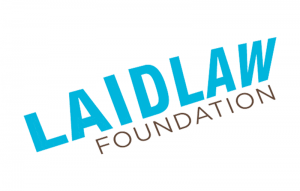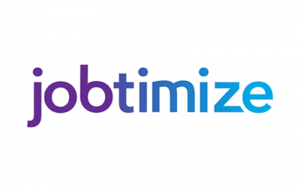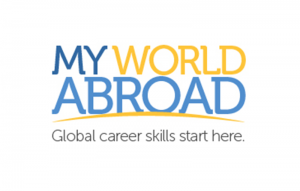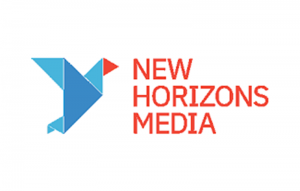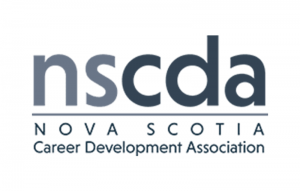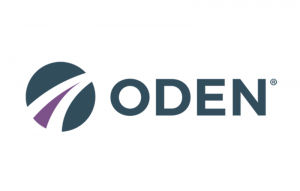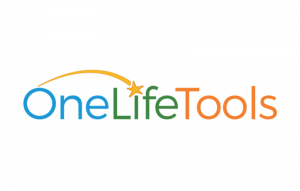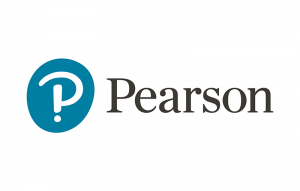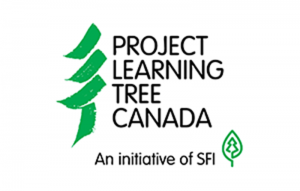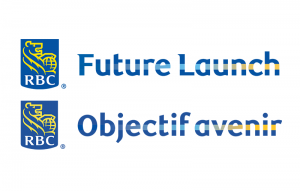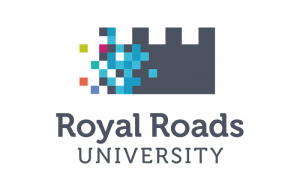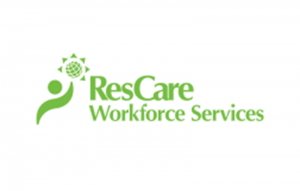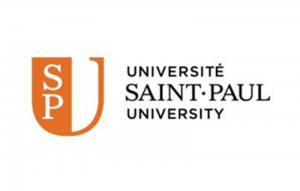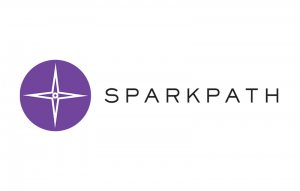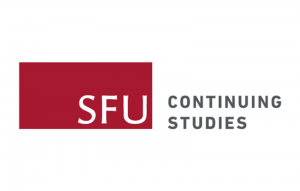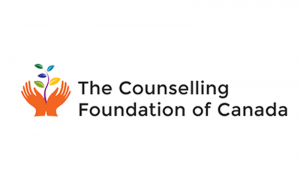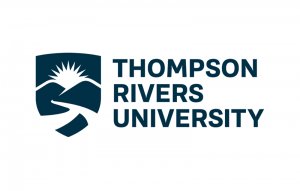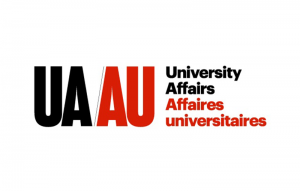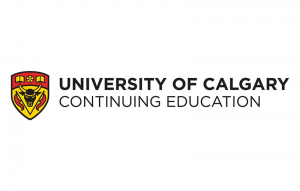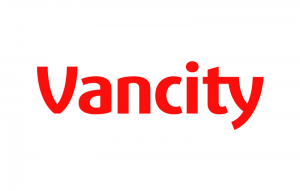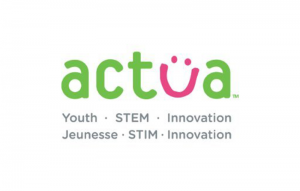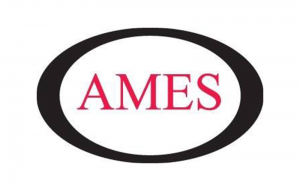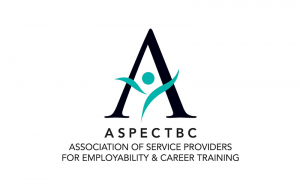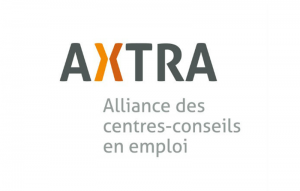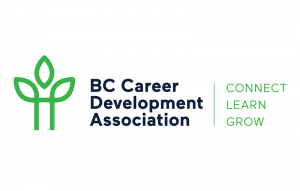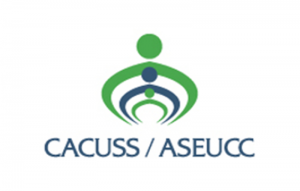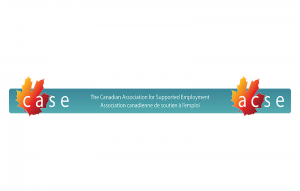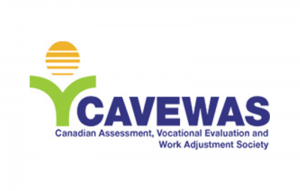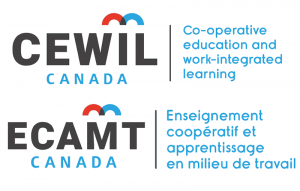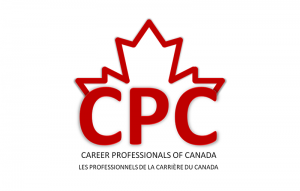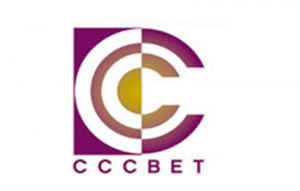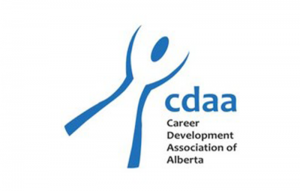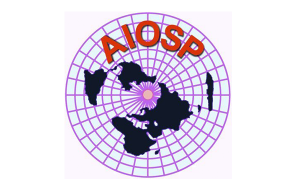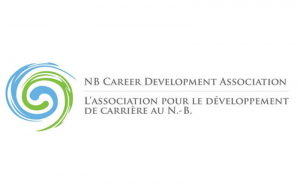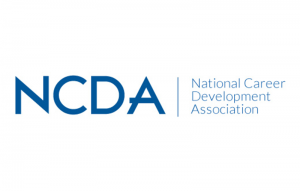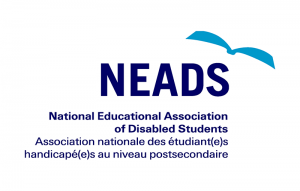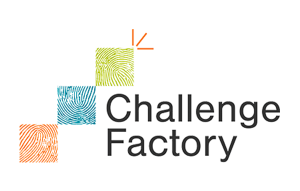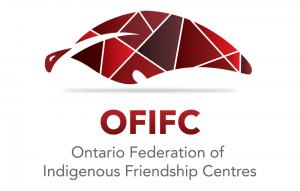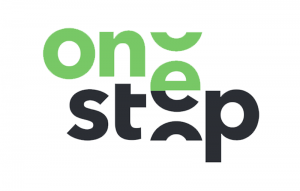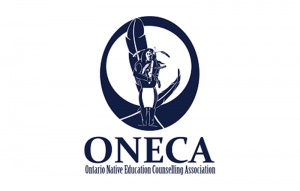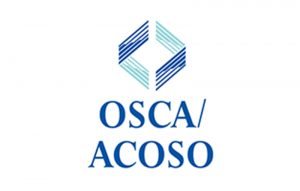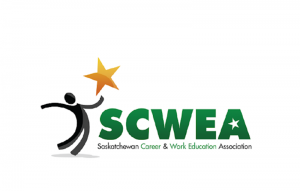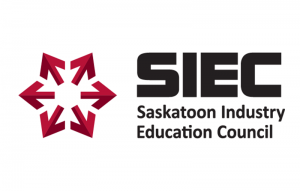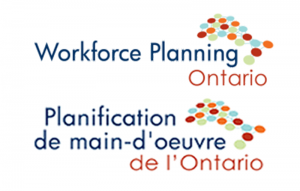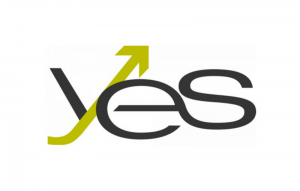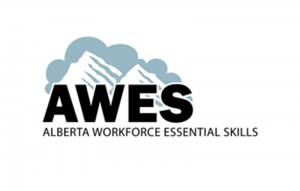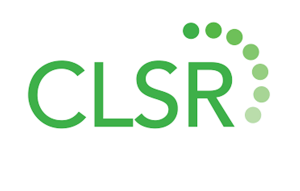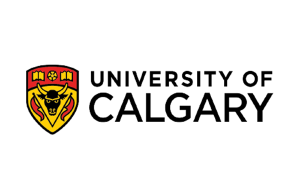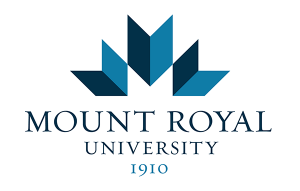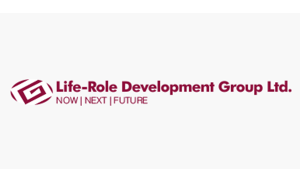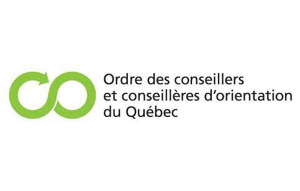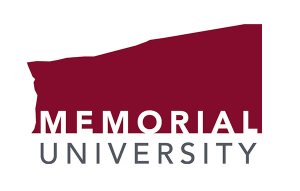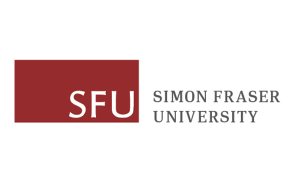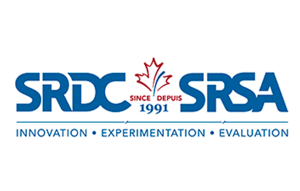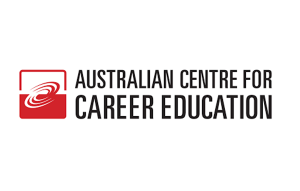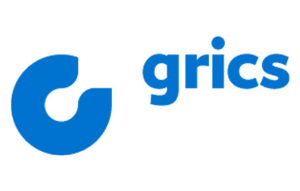Annual Report 2020
Stretch, Support, Strive

Leadership Message

André Raymond
Board Chair
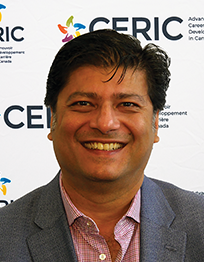
Riz Ibrahim
Executive Director
As we present this Annual Report for CERIC’s 16th year of operation, it would be an understatement to say that 2020 was a year like no other. We started the year with banner attendance at Cannexus, Canada’s Career Development Conference, in Ottawa in January. The aura was euphoric. As we celebrated and processed this milestone, an emergent reality set in. By mid-March, our staff were working from home. The story was the same across the country for our myriad stakeholders.
As a public health crisis spread across Canada, and indeed the world, we could see system stresses being formed, and responded to. CERIC saw its role of supporting career development and those who work with it as a stable anchor. Needs were changing. We needed to understand better how these needs were unfolding and what gaps and responses were emerging. We set out to take periodic pulses of the situation on the ground and share these broadly. Our surveys took a recovery-oriented lens to help us understand what would be needed by career professionals when we moved past the pandemic at some point in the future. Survey data helped inform our actions both initially and throughout the year – they also helped our stakeholders understand the landscape beyond their local jurisdictions. We offered free webinars on timely topics like taking career and employment services online, managing mental and emotional well-being for both clients and career professionals, and how to structure a gap year for high school graduates. Yes, skills development was important, but the year showed us that certain skills and know-how, and a focus on practitioner health and well-being was critical. Expert presenters from the career development field stepped up to allow up to offer this range of learning support for free, and CERIC and our stakeholders appreciated it.
At times, the year took us to new and uncharted places. The lack of connection to stakeholders afforded by our usually robust schedule of cross-Canada roadshows was replaced by other points of contact, be they through surveys, webinars, CareerWise and OrientAction content hubs or Careering magazine. We were able to reach internationally and build relationships with organizations such as the IAEVG and APCDA. The pandemic also meant that we had to reimagine Cannexus as a virtual offering. Being mindful of the economic uncertainties that were unfolding, we offered compelling rates and encouraged more participation from groups and students. We were also able to leverage our new international partners to offer a set of globally focused sessions at the conference.
Internally, we took time in 2020 to fine tune our new Strategic Plan. Early in the year, we revised our Vision and Mission and confirmed two mandates that would drive our work for the next few years. These are: Promoting career development as a priority for the public good; and, Building career development knowledge, mindsets and competencies. It soon became evident to us that at no time before had these dual mandates been so important as now. To this end, we made Career Development for Public Good the theme for our first virtual Cannexus conference. We hoped to bridge the isolation seen within our communities and work, offer timely and sustained skills building, and engage in emergent and forward-oriented conversations that would help us all reimagine career development in this new reality we found ourselves in.
As we ended the year, not enough can be said of the commitment and resilience of our staff. They rose to the occasion for the benefit of career professionals across Canada. A special thanks also to the CERIC Board and Advisory Committee volunteers who helped us navigate through these uncharted waters. And, lastly, to Bruce Lawson and The Counselling Foundation of Canada for their unwavering support, especially at a time when this was most wanted and needed.
CERIC is a national charitable organization that advances education and research in career counselling and career development, in order to increase the economic and social well-being of Canadians.
2020 Impact-at-a-Glance
Highlights
Promoting career development as a priority for the public good
CERIC is committed to working with stakeholders across the career development ecosystem to advance efforts that show the social and economic value, and public benefit of career development. This involves collaborating with employers, government policymakers and educators to advocate for career literacy for Canadians.
Conducting research and activities that demonstrate the value of career development
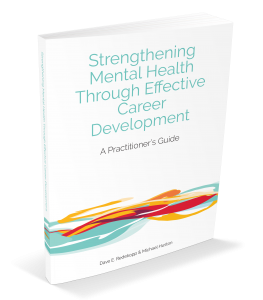
Addressing the impact of career development on mental health
This past year, CERIC published a book that makes the case that career development practice is a mental health intervention. Written by Dave Redekopp and Michael Huston, Strengthening Mental Health Through Effective Career Development: A Practitioner’s Guide explores how career practitioners do far more than help people prepare for, enter and navigate career pathways – they change people’s lives in ways that improve mental health and overall well-being. Available for purchase or free download, the book is based on a CERIC-funded research project with international partners Life-Role Development Group Ltd., Simon Fraser University and the Australian Centre for Career Education. In the wake of a global mental health movement – made all the more urgent by the pandemic – the guide not only helps career practitioners to consider, improve and evaluate the mental health impact of their services but also to communicate this impact to stakeholders, including policymakers.
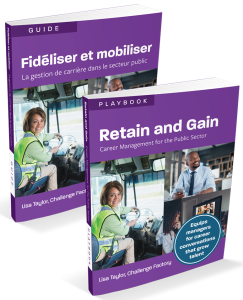
CERIC to publish Playbook to support career management in the public sector
Developing a skilled, inclusive, agile and equipped workforce is a necessity for public sector employers across Canada. To help meet this need, CERIC announced it would develop a Playbook for managers at all levels of government looking to implement better career management approaches with their teams. It will address employee engagement and retention in the changing world of work, including how career development approaches can address the impact of systemic barriers. The Playbook – to be published spring 2021 – also highlights the links between policy work and the importance of career development for citizens. Titled Retain and Gain: Career Management for the Public Sector, the Playbook is authored by Lisa Taylor, President of Challenge Factory, one of Canada’s leading workplace and future of work experts. It builds on two earlier publications in the series focused on small business and non-profits.
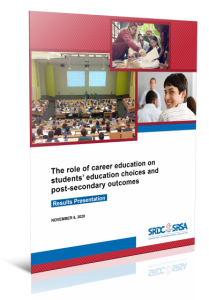
New evidence that career education changes high school student pathways
CERIC funded a study that found evidence to support that career education in high school changes students’ career choices and pathways. The research by Social Research and Demonstration Corporation (SRDC) uncovered that career interventions particularly help lower-income students in clarifying their career plans. The research project, “Role of career education on students’ education choices and post-secondary outcomes” aimed to understand when, where and how youth initiate and craft their career aspirations. The report generates new evidence from unique Canadian data to support decisions of policymakers and practitioners on a) how and when to intervene to assist youth in their career decision-making, and b) for whom supports are effective yet currently lacking.
Amplifying the value of career literacy and a career mindset for Canadians
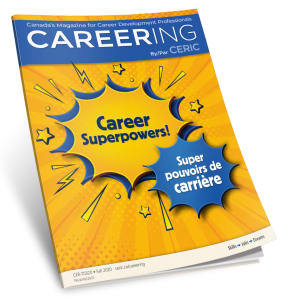
Career development is a superpower that is needed now, more than ever
The “Career Superpowers” issue of CERIC’s Careering magazine highlighted the many ways that career professionals help clients and students become the heroes of their own career journeys. This edition explored the value of career development in tumultuous times with guidance on navigating barriers to career success, including discrimination. The skills and tools described in this issue are ones that anyone can use or develop. From understanding your strengths to developing career agility to sustaining hope for a better future, these are all superpowers that support people through difficult transitions. The Superpowers issue also included an interview with Canadian astronaut David Saint-Jacques. This past year, other issues of Careering magazine – available as a free subscription – examined rural workforce development, and professionalism and ethics in career development.
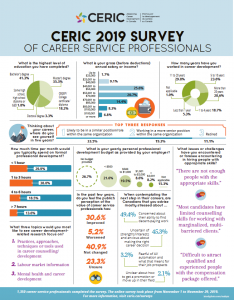
Canadians experiencing high degree of career regret: national CERIC survey
More than 7 in 10 Canadians who see a career counsellor or coach say they wish they had made different career decisions earlier in their lives, according to a national survey of 1,300+ career service professionals undertaken by CERIC. Results were released at Cannexus, Canada’s largest career development conference in January of 2020. Career professionals reported that the students and adults they advise would go back and change their career choices if they could. The findings point to a need for Canadians to have better career development skills, starting at a young age and continuing throughout their lives. The survey results also underscore that Canadians at every age should know that there are professionals they can turn to for career support. Media interest in the survey was very high with CERIC participating in interviews with The Globe and Mail, CBC and BNN Bloomberg.
Survey highlights:
- 71.7% say “I wish I had understood myself better and chosen a career that is aligned with my values”
- 66.55% say “I wish I hadn’t been pressured into pursuing a career I didn’t want to pursue”
- 61% say “I wish I hadn’t played it safe and let fear prevent me from taking a different career direction”
- 58.8% say “I wish I hadn’t narrowed my options so soon and been able to explore other careers”
Engaging with stakeholders in the broader career development ecosystem


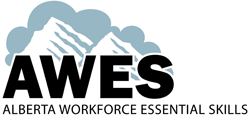







CERIC works in partnership with a diverse range of stakeholders who have a role in prioritizing career development for public good. Over the course of 2020, we engaged with many organizations around shared advocacy goals, systems change and joint learning. Some examples of collaborations:
- Working with RBC Future Launch on hosting a plenary focused on BIPOC youth prosperity the Cannexus conference
- Helping to shape the launch of Catapult Canada, a program of the Rideau Hall Foundation, dedicated to post-secondary access and success
- Participating in the Alberta Workforce Essential Skills – Guided Pathways Advisory Committee providing input on essential skills, adult learning and career development
- Sending a joint letter to the Canadian Chamber of Commerce about getting Canadians back to work in a co-ordinated and strategic way in the wake of the pandemic
- Partnering with the Labour Market Information Council, Canadian Career Development Foundation and the OECD on a free webinar series
- Supporting the new Workforce Funder Collaborative, dedicated to advancing systemic change to create a more equitable labour market across the Greater Toronto Area
- Joining the Canadian Education Association EdCan Network in amplifying evidence-based research around what works in K-12 education in Canada
- Engaging with government stakeholders, including the federal Privy Council Office, around our Retain and Gain: Career Management for the Public Sector Playbook
CERIC sought to deepen its engagement with francophone organizations this past year. Multiple collaborations emerged around career development webinars and the Cannexus conference with Ordre des conseillères et conseillers d’orientation du Québéc (OCCOQ), Réseau canadien des entreprises d’entrainement (RCEE), Réseau des carrefours jeunesse-emploi du Québec (RJCEQ), Réseau de développement économique et d’employabilité (RDÉE), Société Économique de l’Ontario (SÉO) and Association québecoise des professionnels du développement de carrière (AQPDDC).
On the international front, CERIC was also very active. Our Career Theories and Models at Work book has been licensed for Japanese, Estonian and Latvian translations. Our Cannexus conference going virtual also allowed us to bring in new international supporting organizations, International Association for Educational and Vocational Guidance (IAEVG) and Asia-Pacific Career Development Association (APCDA). Our Career Development and Mental Health project brought on the Australian Centre for Career Education as a partner. And, we continued to collaborate with the U.S.-based National Career Development Association on a joint annual issue of CERIC’s Careering magazine.
Building career development knowledge, mindsets and competencies
CERIC’s work is deeply rooted in career development research, learning and acting as a hub for community. Through ongoing professional development, we continue to focus on growing expertise and skills among career practitioners as well as K-12 educators. Deepening career mindsets and engaging with networks that can influence this are emergent areas for us.
Mobilizing knowledge and develop training and resources that support career professionals
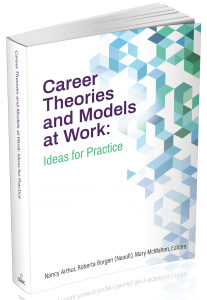
Extending the reach of career theories and models within practice
Over the past year, the CERIC-published book, Career Theories and Models at Work: Ideas for Practice, has gained popularity across Canada and beyond, generating interest from career development professors, researchers and practitioners around the world. The book, which is edited by Nancy Arthur (University of South Australia), Roberta Borgen (Neault) (Life Strategies) and Mary McMahon (University of Queensland), consists of 43 essential and emerging theories and models of career development. CERIC has been funding a project to translate the book into French. Louis Cournoyer (Université du Québec à Montréal) is co-ordinating the translation, with Patricia Dionne (University of Sherbrooke) and Simon Viviers (Laval University) and a team of international academic reviewers. The French edition is slated to be published in spring 2021 and available throughout the Francophonie.
Free webinars held in 2020 with contributors to the book include:
- Making Sense of Career Transitions Through the Theory of Work Adjustment, Jon Woodend, James Cook University, Australia
- An Adaptive Decision-making Approach to Career Counselling, Louis Cournoyer, Université du Québec à Montréal, Canada
- Psychological Health at Work: The Importance of Taking Care of Our Work and Defending Our Occupation, Simon Viviers, Laval University, Canada
- Psychology of Working Theory: A Transformative Approach to Work and Career, David L. Blustein, Boston College, USA

Canada’s only peer-reviewed career development journal expands knowledge
The Canadian Journal of Career Development is a partnership project between CERIC and Memorial University of Newfoundland. It is Canada’s only peer-reviewed publication of multi-sectoral career-related academic research and best practices from this country and around the world. In 2020, two issues of the open-access journal were released; back issues dating to 2002 are available to access for free online.
Select articles included:
- Embedding Informational Interviews into Post-secondary Curriculum
- Impact of Proactive Personality on Career Adaptability and Intentions for Expatriation
- What Inspires Career Professionals in Ontario’s Non-Profit Employment Agencies to Remain Intrinsically Motivated?
- Advancing Older Workers: Motivations, Adaptabilities and Ongoing Career Engagement
- Burnout and Vocational Indecision: Psychological Flexibility as Leverage for Intervention
With the support of a Social Sciences and Humanities Research Council (SSHRC) grant, a new website and author submission management system is under development for launch in 2021.
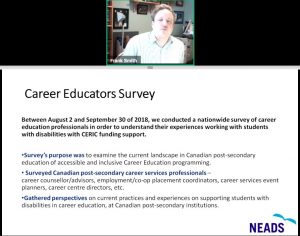
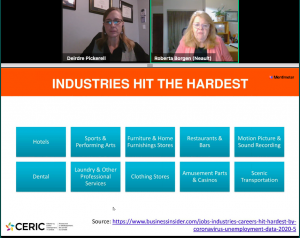
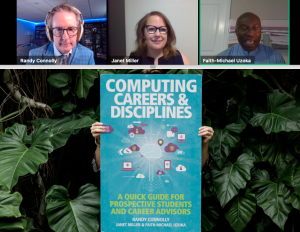
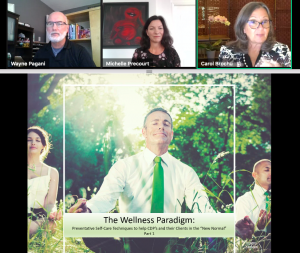
Free webinars address pandemic challenges, drive exponential growth in participation
When COVID-19 changed the way we were all working, CERIC immediately pivoted to offer free webinars with expert presenters on timely topics. This recognized the many challenges that career professionals were facing, including reduced professional development budgets. The first free webinar series was on Thriving Through Chaos, followed by others on Remote Career Services in Unprecedented Times; Going Remote with Experiential and Work-Integrated Learning; Gap Years as an Answer to Education Disruption; and Job Search and Career Exploration During COVID-19 for Newcomers.
Before this shift, CERIC offered a very well-received (paid) series on Effectively Supporting Clients Living on the Autism Spectrum with new webinar partner, the Canadian Association for Supported Employment (CASE). Into the fall CERIC once again offered more paid webinars, with partners both new and ongoing: Career Professionals of Canada, Vocational Rehabilitation Association of Canada, Ordre des conseillers et conseillères d’orientation du Québec, British Columbia Career Development Association and Association of Service Providers for Employability and Career Training (ASPECT). Additionally, this past year, CERIC ran its first sponsored webinar, a series with the Ontario School Counsellors Association (OSCA) on The Role of School Counsellors in Supporting Positive Outcomes for Black Students.

Literature searches focus on LGBTQ, introverts, design thinking and careers during COVID-19
Featuring comprehensive listings of key research and articles in career development, literature searches highlight critical points of current knowledge. During 2020, CERIC released four new literature searches for a total of 60 now available.
The latest additions are:
- LGBTQ and Career Development
- Design Thinking for Career Development
- Introverts and Career Development
- Career Development During COVID-10 and Beyond
Fostering a cross-sectoral community of career development-minded professionals
Taking Cannexus21 virtual after a record Cannexus20 conference
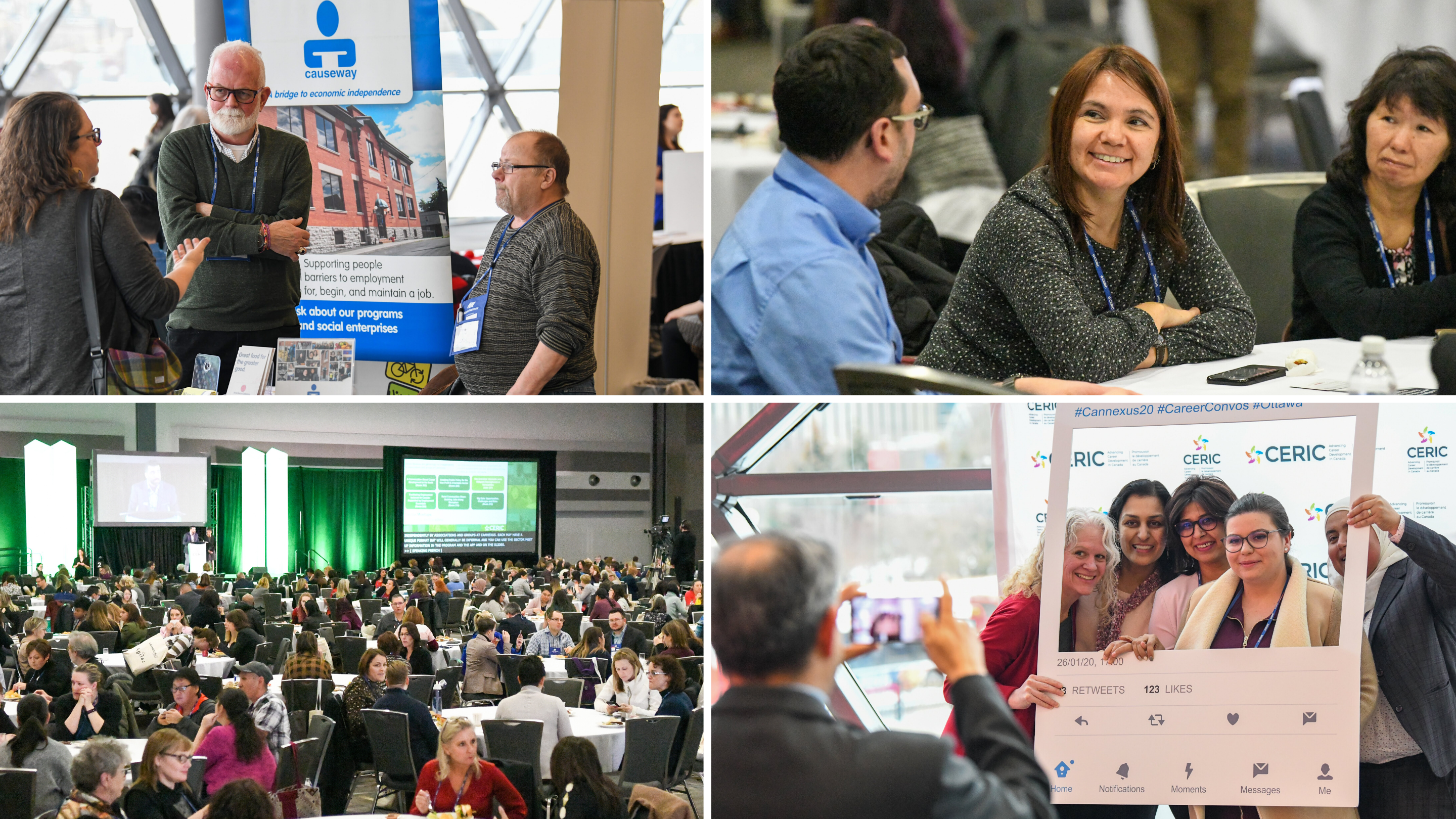
A record number of delegates from across the country and around the world gathered in Ottawa from Jan. 27-29, 2020 for Cannexus, Canada’s Career Development Conference to learn about and discuss the issues shaping work and well-being in Canada. The conference featured three phenomenal keynote speakers: Zita Cobb shared her inspiring work to revive Fogo Island, NL with lessons for preserving small communities throughout rural Canada; U.K. researcher Tristram Hooley made a powerful case for why politicians should care about career development and set out the evidence for its social and economic impact; and Natan Obed, President of Inuit Tapiriit Kanatami, discussed improving the lives of the 65,000 Inuit in Canada. Dedicated programming also included a Workforce Development Spotlight, a World Café around youth employment, the KAIROS Blanket Exercise on Canada’s Indigenous history and Zones showcasing organizations doing work in Mental Health, Social Enterprise and Reconciliation.
“Cannexus offers a national conversation on what’s current – and what’s coming – for career development. It’s a dialogue you won’t find anywhere else. Thank you for building a conference that is an important part of professional growth for our team.”
– Kim Kiloh, Director, Centre for Student Involvement & Careers, University of British Columbia
CERIC turned its attention to planning the Cannexus21 conference and quickly decided to take it virtual. Given the unprecedented times, the virtual format would allow us to address ongoing uncertainty but continue to provide an opportunity for Canada’s career development communities to convene, share and learn. The conference was built on a more relaxed schedule over four days – Jan. 25 & 27 and Feb. 1 & 3, 2021 – with sessions recordings to be available for a full year. Under a theme of Career Development for Public Good, the 2021 edition of the conference was designed to reimagine the role of career development and its impact on education, the economy and social justice. Programming was to include a “Pandemic Recovery” series and an “Around the World” track of international presenters as well as innovative virtual networking options. Also, recognizing financial constraints with the current situation, CERIC created a highly discounted “Gratitude rate” to express appreciation for Canada’s career professionals throughout a chaotic period.


Timely resources from CareerWise and OrientAction for navigating COVID-19
As CERIC’s popular bilingual content communities, CareerWise (English) and OrientAction (French, in partnership with GRICS) responded to the pandemic by helping Canada’s career development professionals to navigate a rapidly changing reality amid COVID-19. A list of timely resources compiled by both sites within days of the first shutdown included critical points of guidance on job search, mental health and remote work in the new era. Throughout the year, the sites – with a mandate to help people working in career development across Canada stay up to date on the top news and trends – continued to provide a forum for community voices to share their experiences and offer lessons learned to their peers around topics such as addressing the pandemic’s uneven impact on marginalized groups and sustaining career engagement in the midst of chronic stress.
CareerWise also produced its first video series that featured interviews with Jim Stanford (decent work after COVID), Trina Maher (Indigenous community engagement) and Ed Hidalgo (integrating career development in the early grades.)
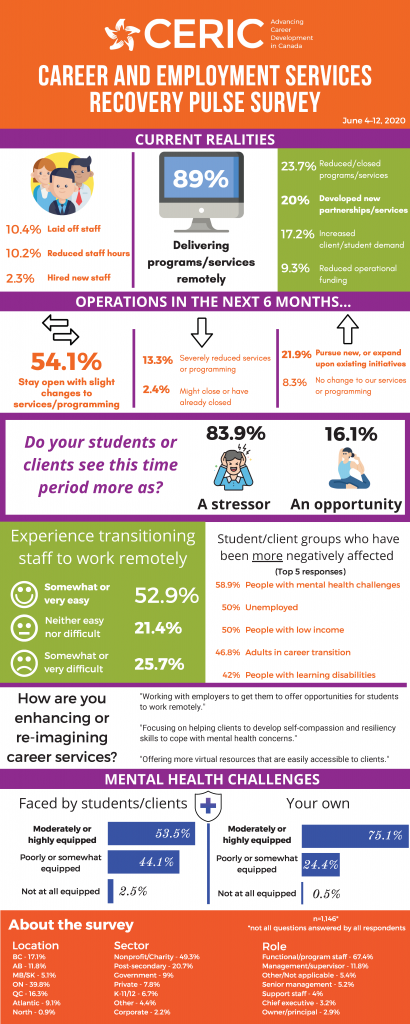
CERIC Recovery Pulse Survey: Resilience and innovation in career services
Despite vast and ongoing challenges presented by the current global pandemic, Canada’s career and employment services are showing remarkable resilience and innovation as they reimagine their work. By leveraging technology, 89% are reporting they are delivering programs and services remotely, and introducing novel approaches to meet student, client and employer needs. These findings come from the first CERIC Recovery Pulse Survey of 1,146 career development professionals in June, which gathered input on the effect of COVID-19 on career services across the country. With the goal of this survey to gather vital intelligence around the changing state of career development in Canada during the recovery, the survey was repeated in September and again in November to track changes over time. Results support the field in understanding how career services are being reimagined and how career professionals can “build back better” together.
Survey comments on the transformation of career services:
“An opportunity for clients to really take the time to research and determine a career change or career path.”
“In an attempt to understand the ‘new normal,’ I have been challenged to be more creative, more empathetic and broad-thinking in my approach to everything.”
“Offering more services remotely in future – expand our geographic territory, more accessible to those with transportation or mobility or childcare challenges.”
Advancing the pipeline of future sector leaders and growing sector capabilities

Marilyn Van Norman Bursary launched to support community-based practitioners
CERIC’s funder, The Counselling Foundation of Canada, established the Marilyn Van Norman Bursary to support community-based career development and employment practitioners in attending the Cannexus conference each year. The bursary is given in recognition of Van Norman, the recently retired Director of Research Initiatives at CERIC and one of its founding Board members. Known as a collaborator, visionary and expeditor, she is widely respected for her more than 40 years of leadership in the career development field with particular expertise in career centre and student services management.
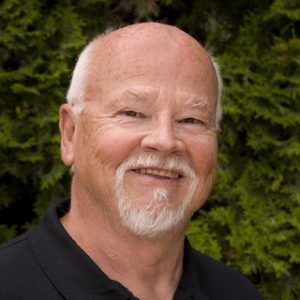
Engaging the next generation of career development researchers
CERIC encourages the involvement of Canada’s full-time master’s and PhD students whose academic focus is in career development and/or related fields in its work through the Graduate Student Engagement Program (GSEP). GSEP celebrated its 10th anniversary in 2020. CERIC had 39 students join the program and presented the GSEP Award (free registration and $1,000 to attend and present a poster at the Cannexus21 conference) to:
- Roxy Merkand, PhD Candidate, Industrial/Organizational Psychology, University of Waterloo
- Gabrielle Beaupré, PhD Candidate, Education, Université du Québec à Montréal
- Janet Payne, PhD Candidate, Education, University of Prince Edward Island
- Walaa Taha, MSc Candidate, Educational Psychology, University of Calgary
University of British Columbia Professor Emeritus Norman Amundson hosted a special GSEP breakfast for GSEP students at Cannexus20 with a virtual program planned for them at Cannexus21.
Enabling academic and community-based research that enhances career development practice
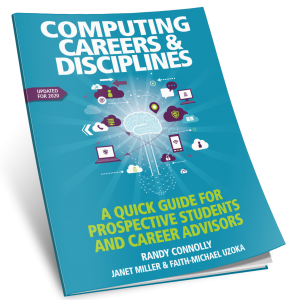
New guide to emergent computing careers released
CERIC released an updated guide to computing careers, responding to strong demand for computing graduates in Canada and a changing technology landscape. Authored by Randy Connolly, Janet Miller and Faith-Michael Uzoka of Mount Royal University, the second edition of Computing Careers & Disciplines: A Quick Guide for Prospective Students and Career Advisors provides the latest information on types of computing careers, including emerging specializations such as bioinformatics, game development and cybersecurity. The guide is available for free download and designed to support prospective students, parents, academic advisors and career counsellors in making sense of the maze of computing disciplines and post-secondary options. It builds on findings from a CERIC-funded international research project that surveyed thousands of students and faculty from Canada, the U.S. and Africa.
Request for Proposals on value of career development within experiential learning
The need to effectively bridge the gap between the classroom and the world of work has ignited interest in experiential learning. Yet, with a recent proliferation of experiential learning opportunities available at all levels of education as well as outside formal education, it is not clear how programs are connecting experiences to career management skills, specifically combining direct experience with focused reflection. CERIC issued a Request for Proposals (RFP) on the linkages between experiential learning and career development. In particular, CERIC’s interest in this project is to develop an easily accessible resource that supports building reflective practice for career development into an experiential learning program, with applications for learners, educators and employers.
Research to examine role of teachers in building career development skills in children
CERIC announced the award of its Career Development in Children: Identifying Critical Success Conditions and Strategies project to an international team of academic researchers led by Dr. Lorraine Godden, Ironwood Consulting and Carleton University; Nicki Moore, University of Derby, and Dr. Heather Nesbitt and Dr. Stefan Merchant, Queen’s University. This project will examine how foundational skills that are introduced and developed by classroom teachers connect to career-related learning in grades 4-6. The starting point is that teachers are the linchpin, guiding learning and play activities that foster foundational skills (e.g., social and emotional skills, self-confidence, empathy, team work, critical thinking, self-awareness) but that these are not usually undertaken from a career development perspective. In the absence of the formal infusion of career into curricula, this research will identify what options are available within the education structure to ensure that children can sustainably develop the tools they need to navigate a world of work we cannot yet imagine.
Financial Statements
Statement of Operations
Year ended December 31, 2020
[ninja_tables id=”47663″]
[ninja_tables id=”47666″]
Acknowledgements
The accomplishments outlined in this annual report were made possible only with the support of many who share CERIC’s commitment to Advancing Career Development in Canada.
A sincere thank you to our Board of Directors for their tireless leadership in charting a new course with our Strategic Plan; to our three Advisory Committees for guiding our research, learning and advocacy work; to our CERIC staff who day-in and day-out stepped up during this very challenging year to turn vision into reality; and, finally, to our funder, The Counselling Foundation for its unwavering support in enabling us to build towards a more fulfilling future for all Canadians.
Thank you as well to the multitude of project partners, Cannexus supporting organizations, sponsors and exhibitors, knowledge champions, webinar partners and collaborators who have joined with us over the past year.
Board of Directors
André Raymond (Chair)
Director, Service de placement
Université Laval, QC
Cynthia Martiny
Professor, Department of Education and Pedagogy
Université du Québec à Montréal, QC
Candy Ho (Vice Chair)
Faculty, Educational Studies
Kwantlen Polytechnic University, BC
Rosie Parnass
Coach and HR Consultant, ON
Cathy Keates (Secretary/Treasurer)
Director, Career Services & Experiential Learning
Queen’s University, ON
Rob Shea
Associate Vice-President, Academic
Memorial University of Newfoundland, NL
John Horn (Past Chair)
Director, Talent Acquisition and Learning
Vancity Credit Union, BC
Lisa Taylor
President
Challenge Factory, ON
Lorraine Godden
Instructor, Career Development and Employability
Carleton University, ON
Sue Watts
Executive Director
Employment + Education Centre (EEC), ON
Darlene Hnatchuk
Director, Career Planning Service
McGill University, QC
Donald G. Lawson (Honourary Director – Ex-officio)
The Counselling Foundation of Canada, ON
Bruce Lawson (Executive Officer – Ex-officio)
The Counselling Foundation of Canada, ON
Practical & Academic Research Committee
Tony Botelho (Co-Chair)
Director, Career and Volunteer Services
Simon Fraser University, BC
Sharon Hobenshield
Director, Aboriginal Education
Vancouver Island University, BC
Sue Watts (Co-Chair)
Executive Director
Employment + Education Centre (EEC), ON
Jeff Landine
Associate Professor, Faculty of Education
University of New Brunswick, NB
Paul Brinkhurst
Innovations Developer
FutureWorx, AB
Adriano Magnifico
Career Development Specialist
Louis Riel School Division, MB
Cathy Campbell
Consultant, NS
Geneviève Taylor
Professor, Department of Education and Pedagogy
Université du Québec, QC
Janice Graham-Migel
School Counsellor, Halifax Regional Centre for Education
Adjunct Professor, Acadia University, NS
Yi-Wen Liao (GSEP)
Master’s Student, Education
University of Prince Edward Island, PE
Tannis Goddard
Mixtmode Consulting
Port Moody, BC
Content & Learning Committee
Darlene Hnatchuk (Co-Chair)
Director, Career Planning Service
McGill University, QC
Holly Linkert
Co-operative Education Teacher
Eastwood Collegiate Institute, Waterloo Region District School Board, ON
Meghan Lavallee (Co-Chair)
Director, Pathway Programs
Manitoba Institute of Trades and Technology, MB
Deirdre Pickerell
Dean, Student Success
Yorkville University, BC
Andrea Christensen
Career Development Practitioner and Learning Specialist
Careers for Life Consulting, AB
Medina Puskar
Manager of Career Services
Manitoba Start, MB
Lucie Demers
Editorial Director
Septembre éditeur, QC
Roxane Stonely
Executive Director
Centre de recherche d’emploi Côte-des-Neiges /Job Search Centre, QC
Scott Fisher
Project Manager, Faculty of Management
Laurentian University, ON
Nkem Onyegbula (GSEP)
Doctorate Student, Business Administration
Royal Roads University, BC
Felicity Morgan
University of Toronto
Mississauga, ON
Marketing, Communications & Web Services Committee
Darrell Cole (Co-Chair)
Facilitator
Brickstorming, MB
Jenny Lee Northey
Career Counsellor, Career Services
Queen’s University, ON
Valérie Roy (Co-Chair)
Executive Director
AXTRA, QC
Rob Straby
Professor, Career Development Professional Program
Conestoga College, ON
Keka DasGupta
Principal
Precision Marketing Group, ON
Barbara Wilson
Owner & Principal
Thrive Career Consulting, ON
Frances Humphreys
Associate Director, Career Development & External Relations
Wilfrid Laurier University, ON
Trevor Lehmann
Career Counsellor
University of Manitoba, MB
Lisa Taylor (Co-Chair)
President
Challenge Factory, ON
Amy Melo
Co-ordinator, Pathways, Guidance and Career Education
Peel District School Board, ON
Aryan Esgandanian (GSEP)
Master of Arts, Public Policy Student
Ryerson University, ON
Staff
Diana Castano
Executive Assistant and Office Administrator
Riz Ibrahim
Executive Director
Thierno Diouf
Co-ordinator, Stakeholder Outreach, Marketing and Communications (Bilingual)
Ye Liu
Specialist, Digital, Marketing and Communications
Sharon Ferriss
Senior Director, Marketing and Communications
Lindsay Purchase
Lead, Content, Learning and Development
Cyrielle Filias
Specialist, Programs, Learning and Development (Bilingual)
Norman Valdez
Lead, Technology and Design, Marketing and Communications
Sandra Francescon
Manager, Events, Learning and Development
Marilyn Van Norman
Director, Research Initiatives
During 2020, CERIC was also supported by interns and co-op students Meg Enciso, Stephanie Taylor, Aydolu Simsek and Tokzhan Alibekova.
CERIC also wishes to thank Ben Liadsky of The Counselling Foundation of Canada as well as Nayan Biswas and Jonathan Hutchinson of Foundation House.
Partners and Supporting Organizations
